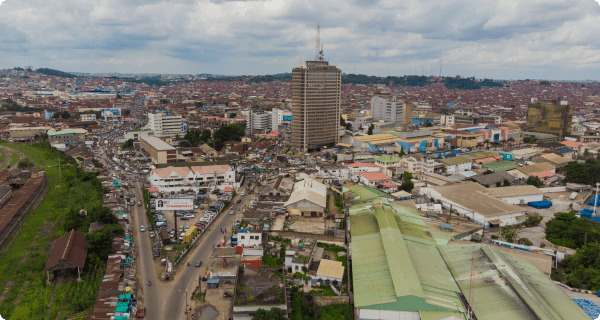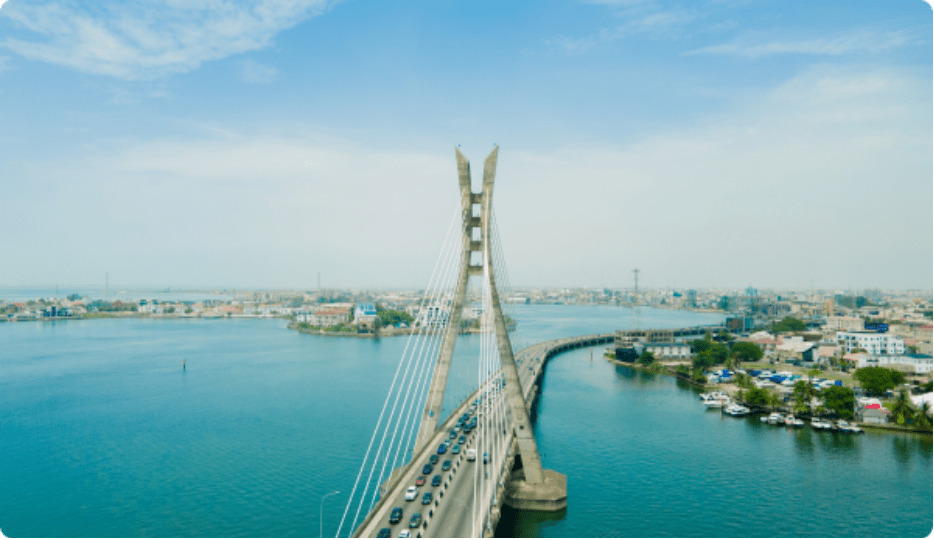UNDERSTANDING THE GROWTH OF REAL ESTATE IN NIGERIAN CITIES: WHAT IS FUELING THE BOOM?
This article discusses the key factors driving the rapid growth of real estate in Nigerian cities, including Lagos, Abuja, Port Harcourt, and Ibadan. It highlights how urbanization, a growing middle class, diaspora investments, infrastructure development, foreign direct investment, and technology (PropTech) are fueling the demand for residential and commercial properties. The article also explores the rise of short-term rentals and tourism-related real estate, positioning real estate as one of the most promising sectors in Nigeria's economy despite existing challenges.

The real estate sector in Nigeria has experienced remarkable growth over the past few years, especially in major urban centers like Lagos, Abuja, Port Harcourt, and Ibadan. Despite economic uncertainties and infrastructural gaps, there's no denying that the demand for residential, commercial, and industrial properties is on a steady rise. From high-rise apartments in city hubs to gated communities and large-scale industrial parks, the property market has become one of the most lucrative sectors in Nigeria today. But what exactly is driving this real estate boom across Nigerian cities? Understanding these forces is crucial for anyone considering investing in the country's dynamic property market.
Population Growth and Urbanization: The Foundation of Rising Demand
One of the most significant drivers of real estate growth in Nigerian cities is rapid urbanization fueled by an ever-growing population. Nigeria is projected to surpass 400 million people by 2050, and much of this population is gravitating toward urban centers in search of better opportunities. Cities like Lagos, Abuja, and Port Harcourt are not only administrative and economic capitals but also magnets for millions seeking employment, education, and improved living standards. This rural-to-urban migration has resulted in an overwhelming demand for housing and commercial spaces. Developers and investors are rushing to fill this gap by creating residential estates, apartment complexes, and mixed-use developments that can cater to the evolving needs of urban dwellers.
The Expanding Middle Class and Its Influence on Real Estate Demand
Closely linked to the growing urban population is the rise of Nigeria's middle class, a demographic that is reshaping the face of the real estate market. As more Nigerians climb the economic ladder and enjoy higher disposable incomes, the appetite for modern, comfortable, and secure housing has increased significantly. This demand goes beyond basic shelter to include luxury apartments, serviced estates, and gated communities in desirable neighborhoods such as Lekki, Victoria Island, and Asokoro. In response, developers are introducing flexible payment options like mortgages and installment plans, making property ownership more accessible to middle-income earners. The desire for status, security, and investment value has made real estate a preferred choice for wealth-building among this demographic.
The Impact of Diaspora Investments and Remittances
Another key player fueling the real estate boom is the Nigerian diaspora, whose investments back home are shaping the property landscape in profound ways. Remittances from Nigerians living abroad are estimated to be in the billions of dollars annually, and a significant portion of this money is channeled into real estate investments. For many diaspora investors, buying land or property in Nigeria is not only a way to maintain roots in their homeland but also a strategic investment against inflation and currency fluctuations. Developers are increasingly creating tailored packages for diaspora buyers, offering verified properties, secure payment plans, and attractive returns on investment. This steady flow of foreign capital continues to drive up demand and property values in urban hubs.
The Role of Government Policies and Infrastructure Projects
No real estate market thrives without the backing of supportive government policies and infrastructural development — and Nigeria is no exception. Various government-led initiatives and public-private partnerships are transforming cityscapes and opening up new areas for development. From the Lagos Smart City project to the Abuja Light Rail system, and from the Lekki Deep Sea Port to the rehabilitation of major highways, these infrastructural advancements are enhancing connectivity and boosting the appeal of adjoining neighborhoods. As road networks improve and public services become more accessible, property values in these areas are rising, attracting more investors and developers looking to capitalize on emerging opportunities.
The Influx of Foreign Direct Investment (FDI) and Partnerships
Beyond local and diaspora investors, foreign direct investment (FDI) has become a crucial component of Nigeria's real estate expansion. International investors from Europe, Asia, and the Middle East are beginning to see Nigerian cities as untapped markets with immense potential for growth, especially in luxury housing, commercial complexes, and industrial properties. Collaborations between foreign firms and local developers have led to the creation of massive estates, malls, and modern office complexes that are reshaping Nigeria's skyline. These investments not only bring in capital but also introduce global best practices, elevating the quality and standards of real estate offerings in the country.
Technology and the Rise of Property Technology (PropTech) Platforms
Technology is playing an increasingly central role in transforming how real estate transactions are conducted in Nigeria. The emergence of Property Technology (PropTech) platforms like www.prexmarket.com has revolutionized the buying, selling, and renting process, making it more transparent and efficient. Through these platforms, potential buyers and renters can access verified listings, take virtual property tours, and complete secure transactions — all from the comfort of their homes, whether within Nigeria or abroad. This ease of access is helping to attract a wider range of investors, including young professionals and first-time buyers who previously found property dealings too cumbersome or risky.
Short-Term Rentals and the Growing Tourism Market
Another exciting dimension of the Nigerian real estate market is the rising demand for short-term rental properties. With the growing influx of tourists, business travelers, and expatriates, cities like Lagos and Abuja are witnessing a boom in serviced apartments and Airbnb-style accommodations. Investors are increasingly drawn to these opportunities as they offer higher returns than traditional long-term rentals. The tourism and hospitality sectors are thus fueling a complementary demand for well-furnished, high-end apartments that cater to visitors looking for home-like experiences during their stay in Nigeria.
Final Thoughts: What This Means for Real Estate Investors
The steady growth of real estate in Nigerian cities is a reflection of deeper social and economic trends — urbanization, wealth expansion, diaspora engagement, government intervention, and technological innovation. While opportunities abound, investors must also be aware of ongoing challenges such as affordable housing deficits, land documentation issues, and regulatory hurdles that could affect long-term profitability. Nevertheless, for discerning investors, developers, and homebuyers, Nigeria's real estate market remains a vibrant and rewarding space. As cities continue to grow and modernize, the demand for well-planned residential and commercial spaces will only rise, making now a strategic time to invest.
If you're considering tapping into Nigeria's real estate market or looking for verified property listings, www.prexmarket.com offers a trusted platform to find affordable, secure, and high-value real estate deals across Nigeria.
Ready to Invest in Nigerian Real Estate?
Explore verified and affordable property listings on www.prexmarket.com, Nigeria's trusted platform for safe and secure real estate transactions.
Share this story:


